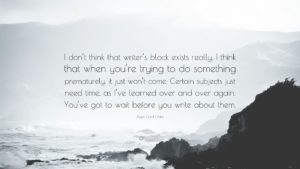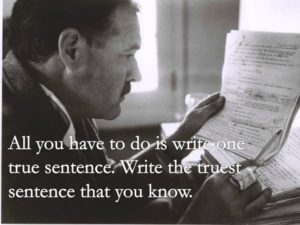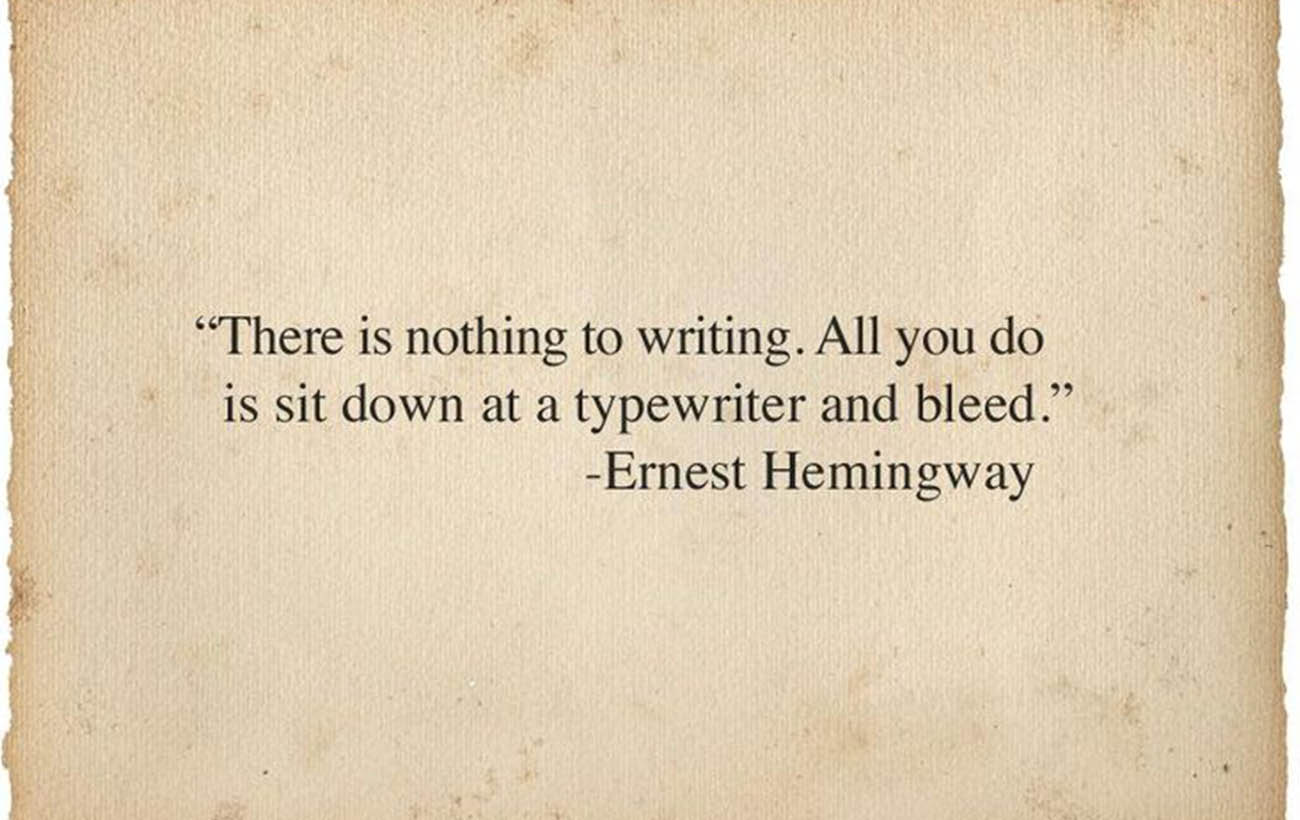How to beat writer’s block8 min read
Even if you aren’t a writer you may experience writer’s block for school, a hobby project, an important email or other work-related projects.
While there are many ways to overcome writer’s block, here are some tricks that work for us.
1. Just start writing. Sometimes the key is to just write, poorly. I’m the queen of perfectionism and procrastination. But often once I start writing, the words progress from bad, to better, to decent. If I never started writing I wouldn’t have gotten to that point.
2. Talk it out. Sometimes talking about the topic can be the most useful thing to do. Talk to a co-worker, a partner, or your dog (seriously, Susan is a great listener). Talking about the topic with someone else can give you a good starting point or help you frame your ideas more clearly.
3. Read about the topic. Use frameworks and themes from similar types of topics or articles as a starting point. NEVER plagiarize or lift words from other writers, but don’t be afraid to get thoughts and ideas in your head to begin with and see how other people have approached your topic.
4. Outline before you draft. When writing something start with a basic formula. For example, when I write a press release, I start with all the required information and then plug it into a basic formula: Title, subtitle, catchy intro, most important information, quote etc – all laid out in a pattern.
5. Rant about it. I was at a writing workshop a couple weeks ago and one of the presenters shared that ranting about a topic is one of the ways she frequently uses to get started when she was stuck. She would pick a part of the topic that was “hot” and rant about it until she had an actual structure for an article and then go back and clean it up so it was fit for public consumption.
 6. Move your body. Go for a walk, hike or jog. I’ve walked and recorded myself talking about the topic into a voice recorder on my
6. Move your body. Go for a walk, hike or jog. I’ve walked and recorded myself talking about the topic into a voice recorder on my
phone, jumped on a trampoline and taken a swim. Moving my body lets me think about things differently. Sometimes I’ve come back and transcribed. Other times it was the push I needed to start the writing process.
7. Take a shower. All the best ideas happen in the shower. True story.
P.S. Not recommended for group brainstorms.
8. Write out of order. Introductions are hard for me, so I write them last. For example, with this list, I started the list first, then went back and wrote the intro. For non-list articles, I’ll begin with the conclusion and work my way backward. When writing a story I often start with the last line and work backward to get there as well. (It’s also a lot easier to foreshadow for characters when you know what’s going to happen already.)
9. Change locations. Switch to a different place in the house, office, or move to a coffee shop. Better yet, drive to a coffee shop in the next town over.
10. Get rid of distractions. Close all other windows on your computer screen and change your word processor to full-screen mode. I’ll sometimes go to a place without internet or turn my wifi off and put my phone in the other room so I can concentrate.
 11. Wait. I often formulate a story or a project in my head, toss it around, try out different phrases and then when I sit down to write it’ll all come pouring out of my fingers. But if I try too soon, or try to force it, then it’s painful. If you can afford it, waiting a day or two may be key.
11. Wait. I often formulate a story or a project in my head, toss it around, try out different phrases and then when I sit down to write it’ll all come pouring out of my fingers. But if I try too soon, or try to force it, then it’s painful. If you can afford it, waiting a day or two may be key.
12. Write about something else. When I can’t write about what I need to it’s often because there is something else more pressing on my mind. I’ll write the thing my brain is focused on and then I can easily switch gears and flow into the next topic I need to cover.
13. Change your medium. I often write on my laptop. However, when I get stuck and need to start flowing I’ll switch to my notebook with my favorite pen – going analog, and for some reasons, the ideas flow better. Or I’ll switch to my Ipad with a keyboard attached. I’ve even outlined and brainstormed on my sliding glass door. Changing the physical way you’re thinking about something can help the mental (and emotional) way you’re thinking about it too.

14. Have a drink. Seriously. There is a reason why people say, “Write drunk, edit sober.” While often attributed to Ernest Hemingway (he didn’t say it apparently) there’s a value in using substances to loosen up the creativity. According to science, you should, “write tipsy and edit with coffee.” I agree, based on personal experimentation. While I don’t drink every time I write (because my liver would revolt) there are times where nothing else is working and I need to get out of my own head a bit. I find wine or scotch to be the best writing tools for me.
15. Read great writing. Even if you aren’t experiencing writer’s block, all great writers should be great readers. If you’re experiencing a block for a project take a 60-minute break and pick up a book.
16. Time yourself. One of my favorite #GSD methods is to set a timer for 50 minutes and see how many words I can write in that time period. The key is acknowledging that you’re drafting, not crafting. Let go of perfection and put as many words as you can on paper. Then take a 10-minute break and do it again, see if you can break your record.
17. Create a backstory. When I’m writing fiction and get stuck I’ll start creating character backstories just to keep my fingers moving and the ideas flowing. Why does grandpa have a limp? What is up with the fairy I keep seeing who is smaller than the rest of the fairies? What do zombies do when they’re on vacation? Not only does this help with character development, but helps you think about the story deeper and can springboard you into better plot points.
18. Turn on music. I have two writing playlists. One is acoustic covers. The other is techno dance remixes. They both signal to my brain that it’s time to write. They also drown out all the other distractions around me.
19. Build a routine. When I was doing heavy writing for my parenting book I would get the most work done when I had a routine. I got up at 5 a.m. every morning, made coffee, put on the same sweater, sat at the same spot in my room and wrote until 7. I trained my brain associated the time, the quiet, the coffee, the sweater and space with writing. I simply opened my laptop and the words flowed. (Which reminds me, I need to start doing that again.)

20. Allow yourself to enter a state of flow. For me this is key. I’ve been (trying) to train the people around me when I have headphones in I need to not be disturbed because it means I’m hyperfocused and “flowing.” Pulling me out of my flow means I’ll have a hard time getting back into it.
21. Ask your friends for help. I did that to help compile this list. Thanks Facebook friends! There are even more great ideas on that list, and it keeps growing!
22. Redirect. Know how you deflect writing time and resist. I get “squirrely” and have to redirect myself. I can’t sit still, can’t focus and need to start writing.
23. Turn your phone off. Silence notifications on your laptop. Limit distractions as much as humanly possible.
24. Stand up. Get a standing desk or find a counter tall enough to stand at and type. I’ve been known to create standing desks out of books and drawers in order to be antsy and productive at the same time.
25. Just do it. Seriously. I have goals set for writing a certain amount of time every day. It’s easy for me to get pulled into the day-to-day writing that isn’t moving my passion projects forward or isn’t revenue generating. (I’m looking at you Facebook). Write every day. Just do it.

Hopefully these suggestions give you something to work with or generated some new ideas for ways you can conquer writer’s block. I use them all differently, depending on what the current block is and the type of writing I’m trying to accomplish.
Let us know what you do to combat writer’s block in the comments below. Happy writing!
P.S. Some days, however, are not writing days. It’s okay to accept that as well, just as long as you have more writing days than not.







